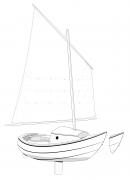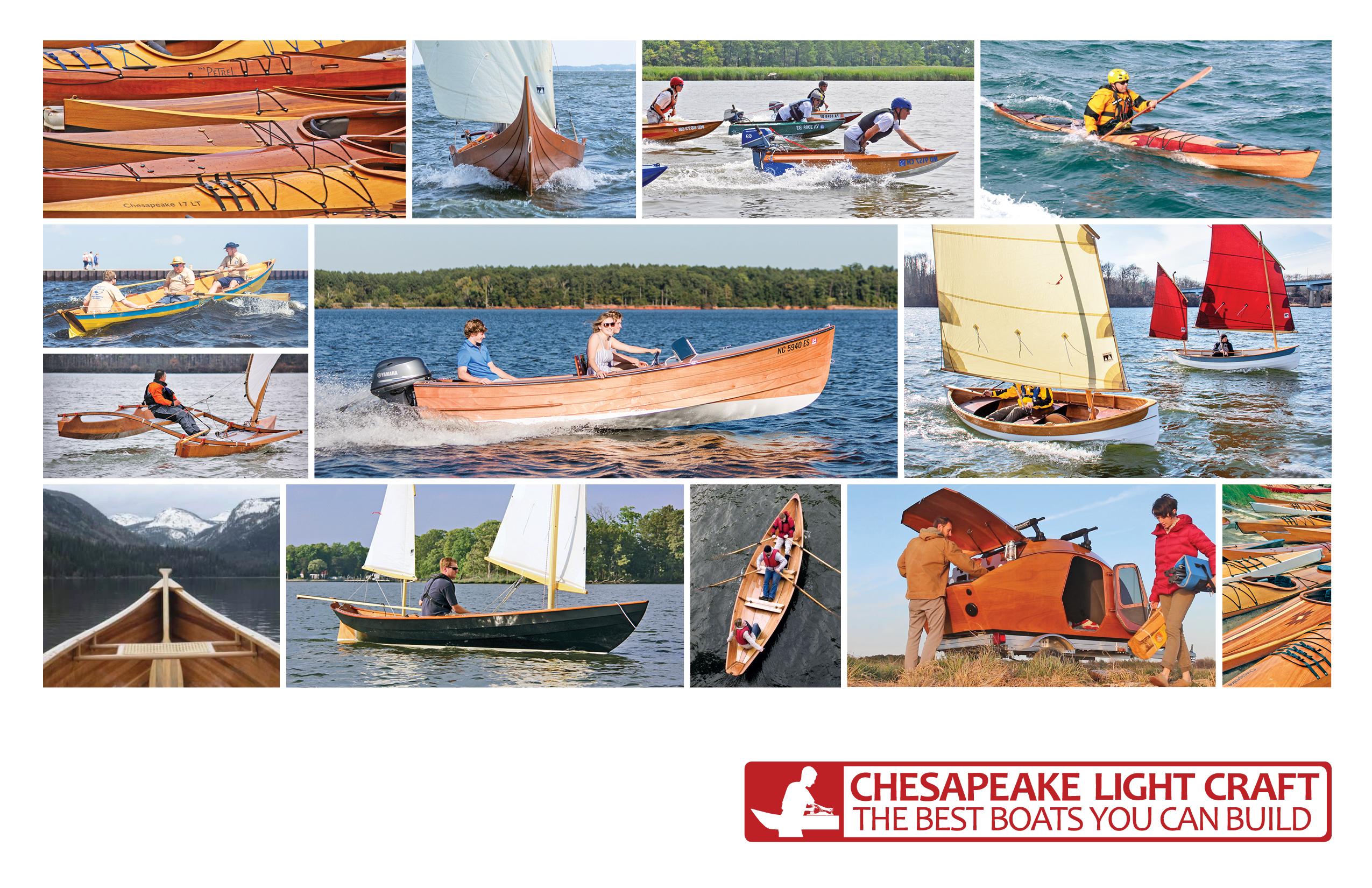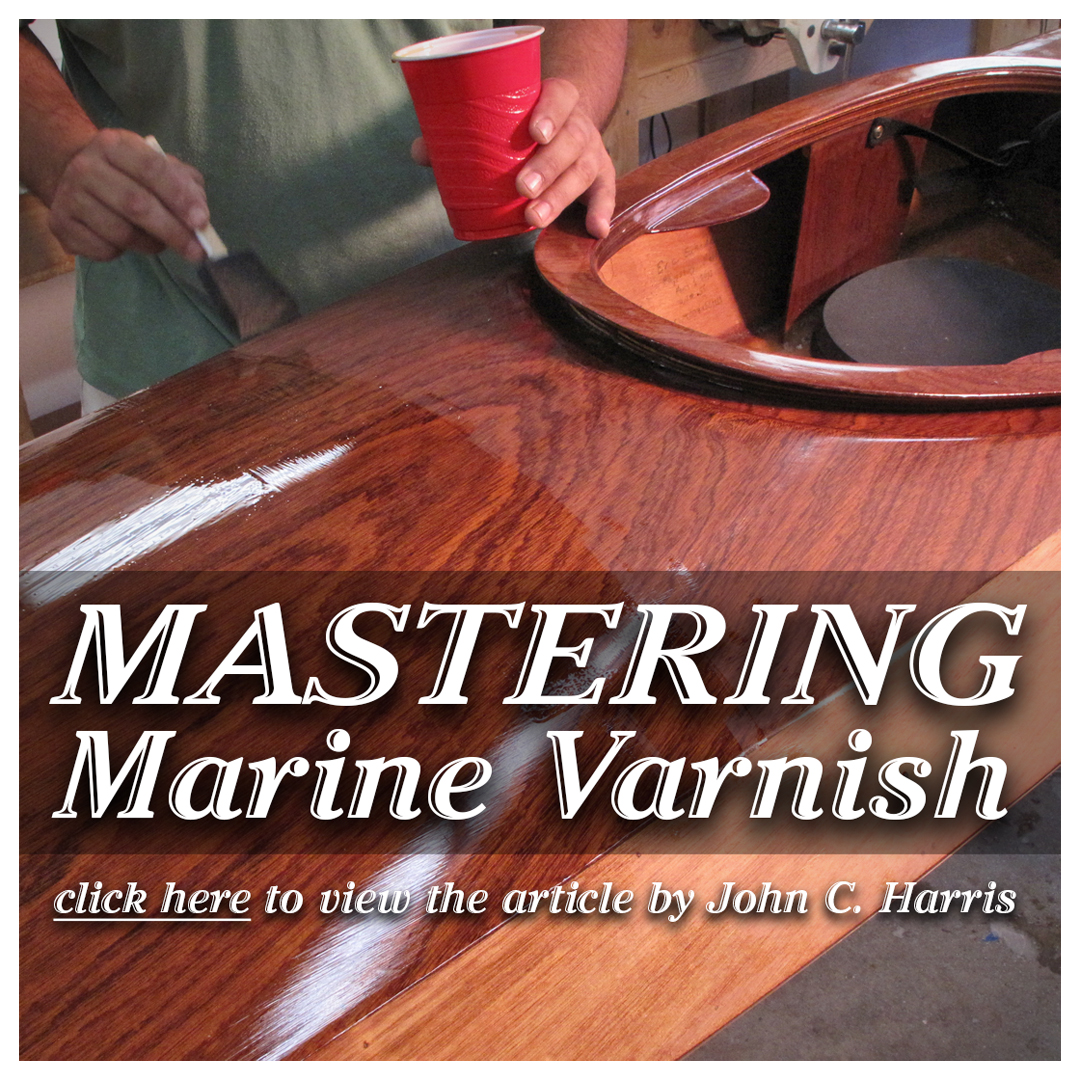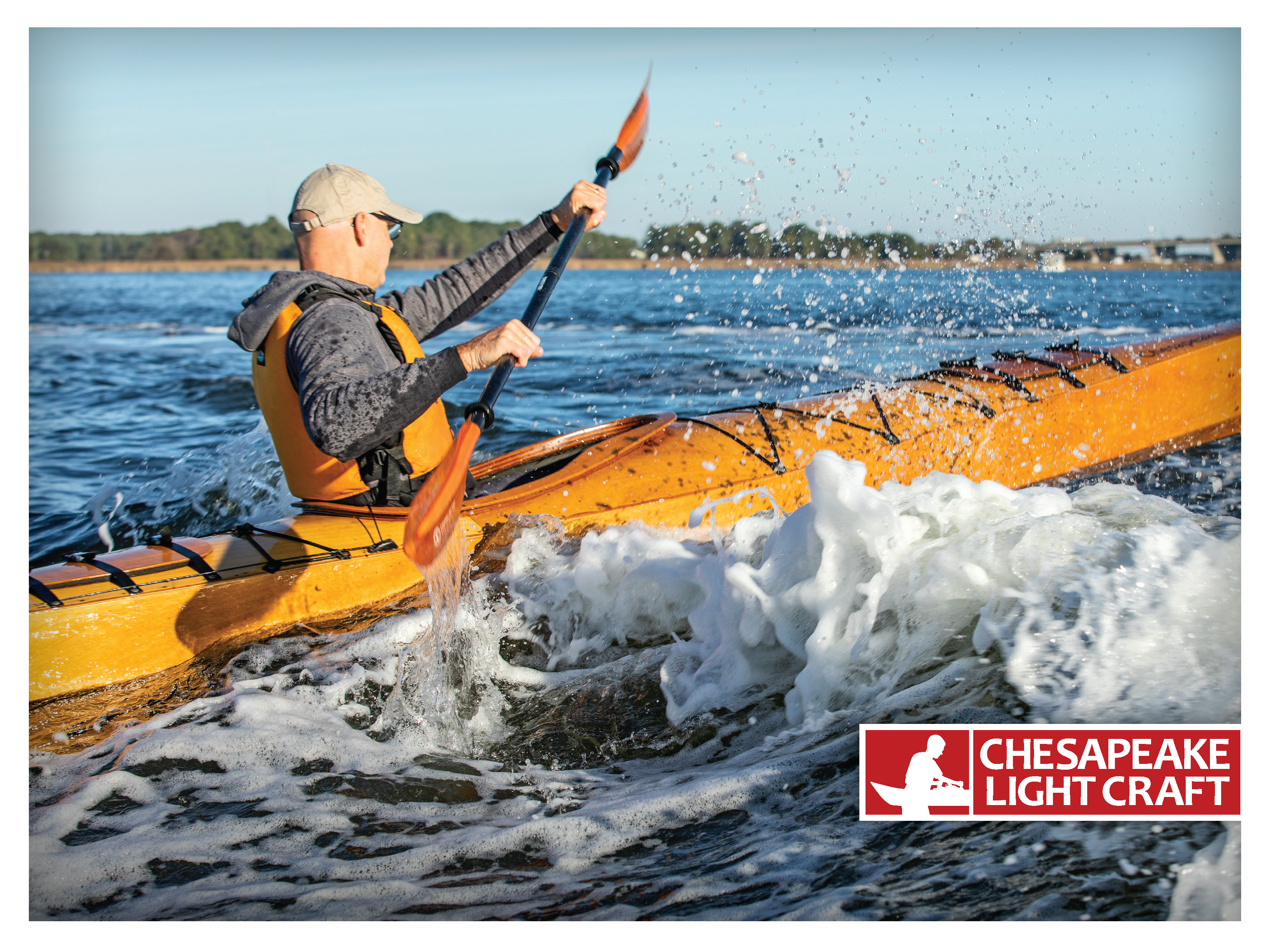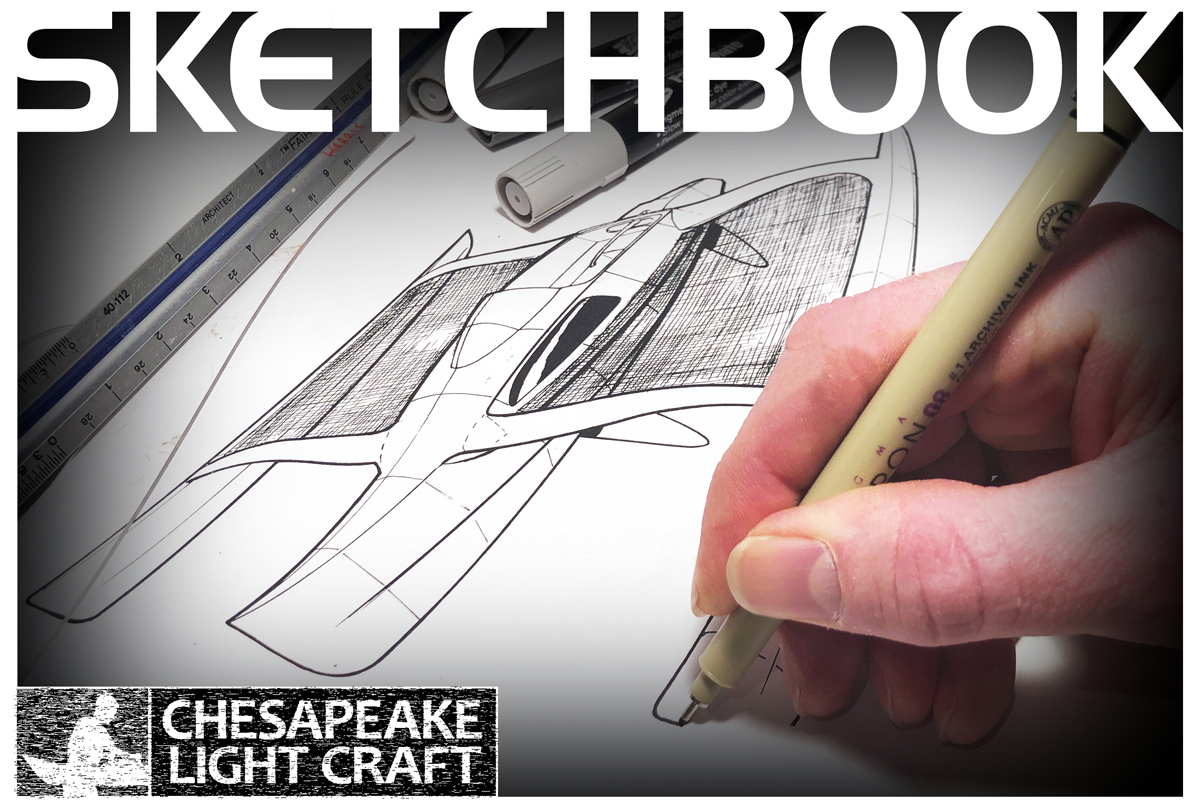CANOE & KAYAK - AUGUST 2003
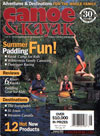
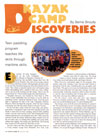
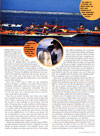
KAYAK CAMP DISCOVERIES by Berne Broudy
Every summer, 20 lucky teenagers descend on the Lake Champlain Maritime Museum in Vergennes, Vermont, for an experience that inevitably changes their lives: the Champlain Discovery Program. They start out as average scrawny 13- to 16-year-olds from a variety of backgrounds who aren't totally sure how they feel about being away from their families for five weeks. They return as muscled, tanned, more self-assured young adults with paddling skills, a sparkle in their eyes, and a willingness to get up in the morning and take charge. They're also the proud owners of 17-foot wooden kayaks they built themselves.
Champlain Discovery was founded by Nick Patch in 1994. Patch, a master boatbuilder who was hungry to use his skills for something "useful," turned his attention to teens. Given the green light to implement his idea at the Lake Champlain Maritime Museum, Patch developed the program, which has been running consistently and with only minor tweaks for the past 10 years.
For the first three weeks of the five-week camp, each participant builds a Chesapeake Light Craft stitch-and-glue kayak, with breaks to learn leave-no-trace camping, nautical skills, paddling strokes, wet exits, and even how to roll. After finishing their boats, students paint them in a riot of themes and colors. Then comes the moment of truth, the launch. With boats afloat, students focus for the next three days on refining their paddling and group skills, adding deck rigging, fine-tuning seat adjustments, and learning how to pack for a two-week trip. Then they set sail.
Ten new sailors and three trip leaders captain their boats on a 12-day maiden voyage from Whitehall, New York, Lake Champlain's southern terminus, to Burlington, Vermont, more than 65 miles away. The group camps in remote locations, performs community service, refines social and nautical skills, and forgoes showers.
When Discovery participants apply for the program, their reasons range from wanting to have fun and make friends to fascination with the idea of building their own navigable craft. Says Patch, "My goal is not to turn out boatbuilders, but to help these kids learn skills that will make them stronger, more self-assured people: leadership, teamwork, belief in their own ability, and the often-overlooked skill of being able to cooperate with others who may have different opinions."
"It's the reason I come back each year," says longtime Discovery Program instructor Angela Gibbons. "This program goes way beyond building kayaks. It's about building kids."
The teenage years can be the most awkward time in a person's life. The transformative power of working with their hands, being encouraged to be themselves, and gaining a little independence from family while developing deep bonds with each other is best expressed by the students themselves. Writes Madeline, age 14, "I had so much fun this summer learning and trying new things. I had the summer of my life. I entered the Champlain Discovery Program unsure and not really motivated. But after the first day, I was happy to be there. I want you to know the amazing influence that you and this program had on me."
Asked what the greatest challenge is for Champlain Discoverers, Patch and Gibbons agree. It's getting along with others. Says Gibbons, "It's not just the biggest challenge for kids. Tolerance for different points of view is probably the biggest challenge for humanity. We try and teach the kids who come to us to care about each other and to be aware of how they affect each other. We challenge them to be problem solvers, both out on the water and within the group. We work as a family and figure things out together. We share our feelings, and there is a strong emphasis on letting each person find out who they are and then letting each person be who they are." These are the subtleties that kids may be less aware of than the hard-and-fast skills they learn each day, like how to light a stove safely, cook a meal, poop in the woods, keep clean without a shower, understand the weather, chart a course, and find a good seaside camp spot.
Patch and LCMM want to make sure the Champlain Discovery Program is available to everybody. With the help of foundations, endowments, and private donors, each year 40 to 50 percent of tuition is disbursed by scholarships. The only requirements of the teens are the ability to swim, a willingness to work with others, and a short personal essay on why they want to participate in the program.
Once they are enrolled, the days aren't always easy, though they eventually become routine, with slight variations depending on the weather. A typical day on the water trail has paddlers getting up early to take advantage of calm morning winds and waters. The group packs up camp, breakfasts, and then squeezes food, tents, sleeping bags, and personal effects into their hatches. A student Leader of the Day presents the route, weather considerations, camp spots, and the day's plan of action. And then they set sail, paddling from 2 to 18 miles in a day, always with lots of opportunities to swim, snack, and learn about the lake and its natural and cultural history. Afternoon and evening are spent setting up camp, cooking burritos or mac and cheese, and telling stories, playing cards, or going for walks.
Besides the constant stream of letters coming to Patch, Gibbons, and other instructors from kids who have completed the course, perhaps the greatest testimony to this program's success is the number of students who return each year for the 12-day alumni trip. Gibbons remembers how it all started: "We circled up before landing in Burlington harbor to take a final few minutes amongst ourselves before the flurry of snapping cameras, the hugs from parents, and the chaos of re-entering society. There was silence, and then one of the kids said, 'Hey Ange. Let's keep going all the way to Canada.' I pointed out that there was a rather large welcoming committee waiting for us, but they didn't care. They weren't done. I put the challenge to them to organize themselves to come back the next summer so we could finish the trip. The next summer every one of them was there, and we paddled from the museum to the Canadian border." Each year graduates return to act as junior trip leaders.
There aren't any studies that specifically examine the effects of putting a group of kids out on a big body of water to work their way through waves, headwinds, bugs, and the monotony of yet another pb&j on a tortilla, who also take the opportunity to laugh hysterically, put on creative costume dances at remote campsites, and leave their Walkmans and Game Boys behind. But as programs like Outward Bound and NOLS (National Outdoor Leadership School), and now Champlain Discovery, have proved, it's an experience that inspires change that can be deep and enduring.
Gibbons reels off a laundry list of success stories, including a kid who arrived as an ADHD problem and went back to school to become class president. There is no single definition of success, but the experience affects all participants profoundly, even if only to help them develop long-term friendships and a sense of self. Says Gibbons, "Every year I'm astounded at the change I see in kids from the first day to the last. It's tremendous, and it's what keeps me coming back. Maybe if we all had a chance to learn how to get along, how to talk and work things through, the world would be a better place. Building boats is a good metaphor. If I can contribute to world peace in five weeks by helping teens learn about themselves and how to get along, that's very satisfying." For more information on the Champlain Discovery Program or other teen and adult programs offered through LCMM, visit www.lcmm.org. In 2004, LCMM will offer the Champlain Discovery course from its Vergennes location and from a new location in Burlington. Call for dates, (802) 475-2022.

 return to section:
return to section: 